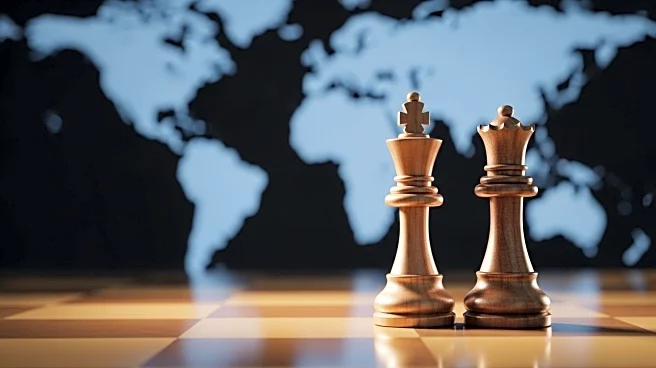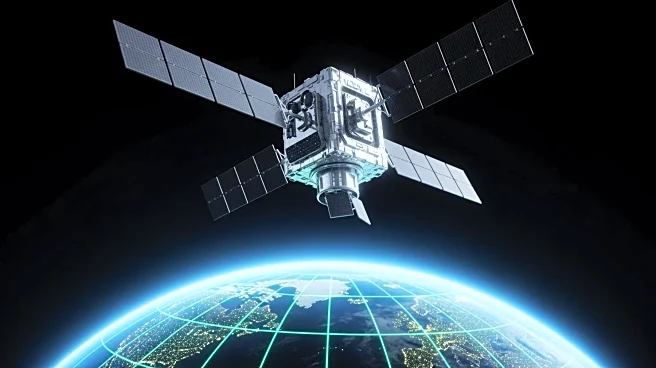What is the story about?
What's Happening?
During the Shanghai Cooperation Summit in Tianjin, China, Xi Jinping criticized the 'bullying behavior' of Western countries, while Vladimir Putin blamed the West for the ongoing war in Ukraine. Putin claimed the conflict was provoked by a coup in Ukraine supported by Western nations and attempts to integrate Ukraine into NATO. The summit, attended by leaders from Eurasian member states, including Indian Prime Minister Narendra Modi, aims to challenge Western-led multilateral blocs. Xi emphasized the need for member states to oppose cold war mentality and promote multilateralism, offering financial aid and loans to support economic cooperation among member countries.
Why It's Important?
The summit highlights the growing geopolitical tensions between Eastern and Western powers, with China and Russia seeking to strengthen their alliances and challenge Western influence. Xi's criticism and Putin's blame on the West underscore the deepening divide and the potential for increased global instability. The summit's focus on economic cooperation among member states could lead to shifts in global trade dynamics, impacting U.S. economic interests and foreign policy. The presence of North Korean leader Kim Jong-un and potential meetings with Putin and Xi could further complicate international relations, particularly with the U.S.
What's Next?
The summit may lead to further economic and political collaboration among member states, potentially increasing tensions with Western countries. Analysts will watch for any formal meetings between Putin, Xi, and Kim, which could signal a new cold war dynamic. The U.S. may respond with diplomatic or economic measures to counter the growing influence of the Shanghai Cooperation Organization. The summit's outcomes could influence future negotiations and alliances, impacting global stability and U.S. foreign policy.
Beyond the Headlines
The summit reflects broader geopolitical shifts, with China and Russia positioning themselves as leaders of a new multilateral order. The emphasis on opposing Western 'bullying' and promoting economic cooperation among member states highlights the potential for long-term changes in global power dynamics. The summit's focus on economic aid and loans suggests a strategic effort to strengthen ties and reduce reliance on Western economies, potentially leading to shifts in global trade patterns and economic alliances.














